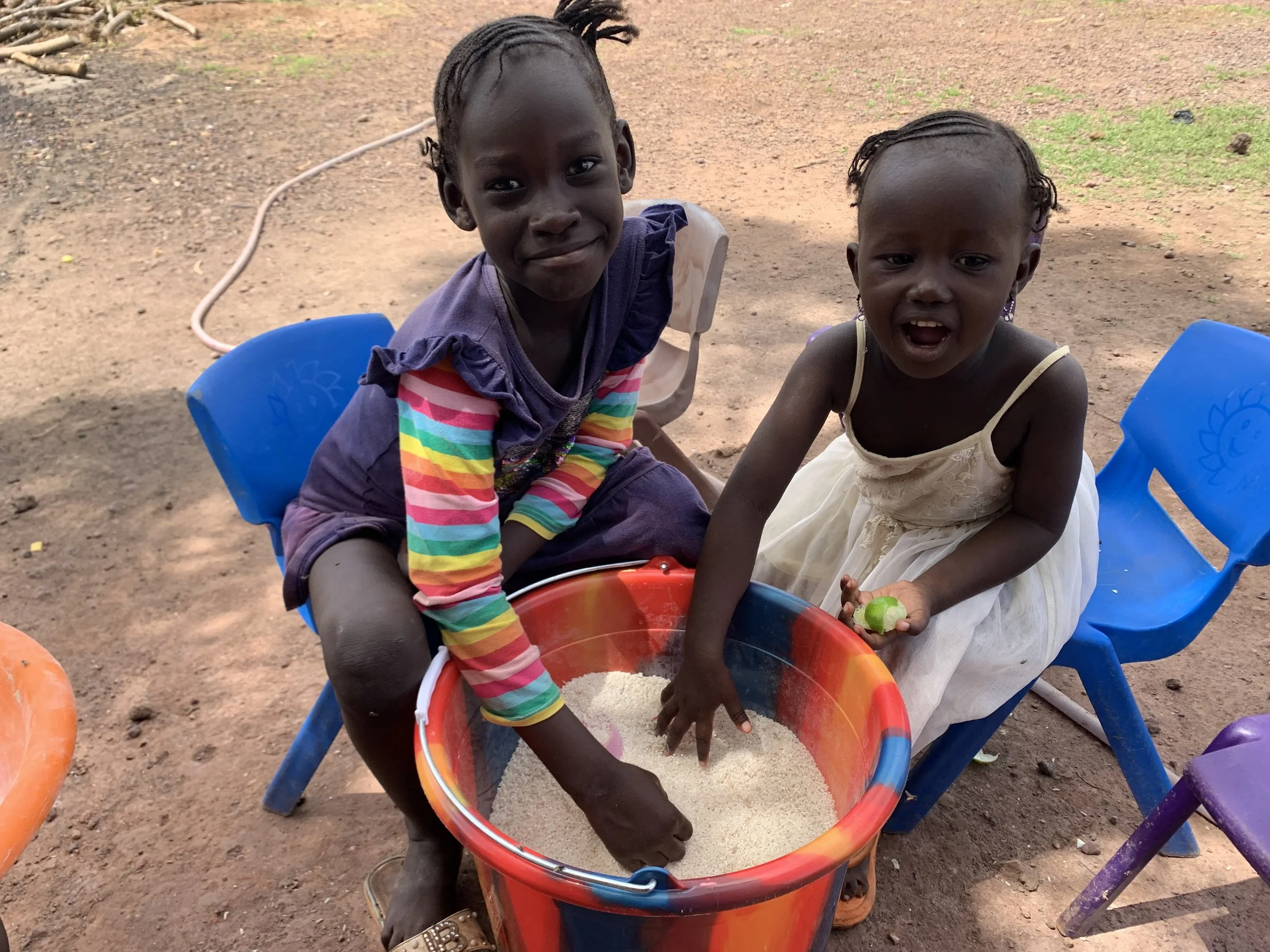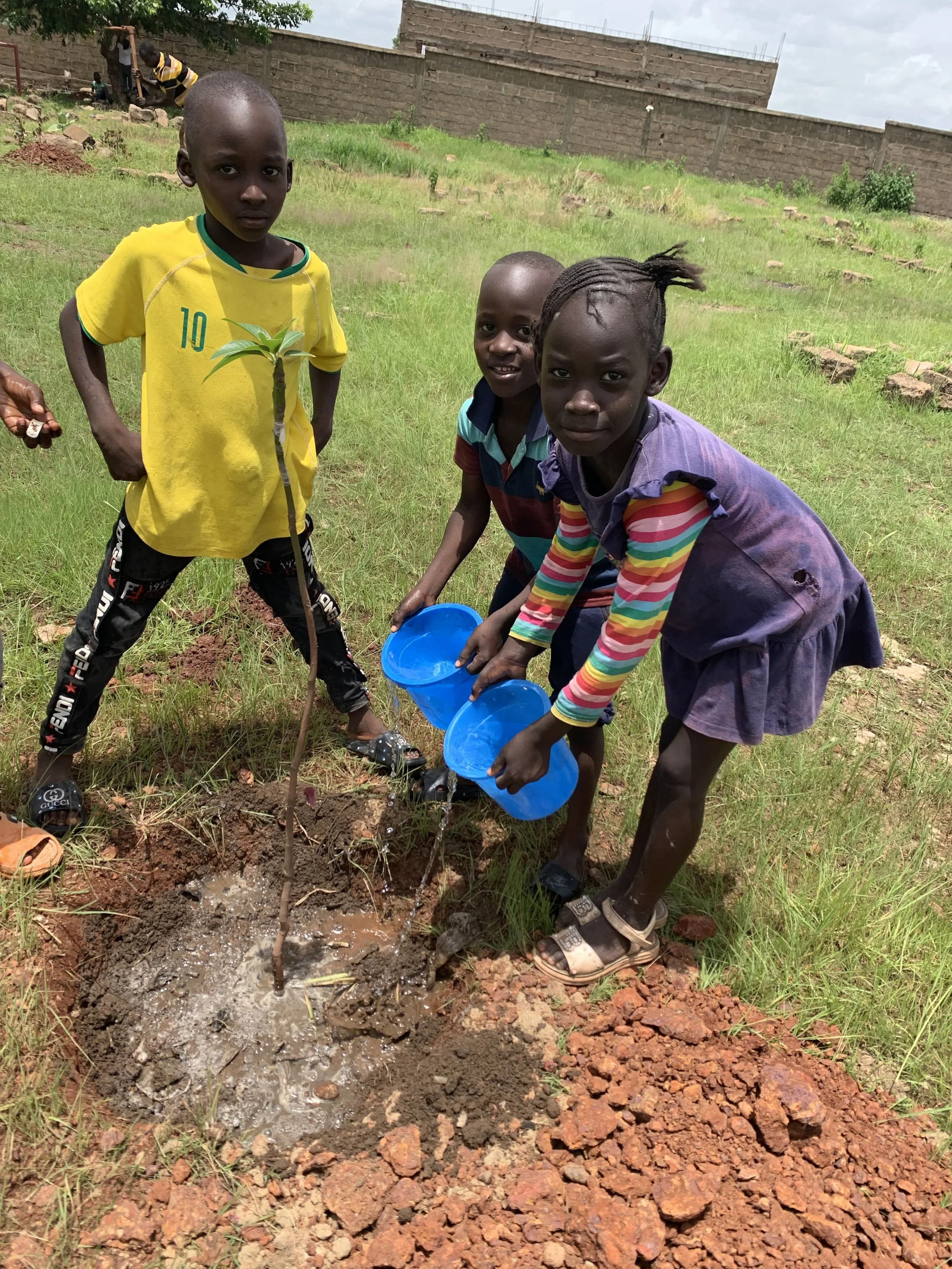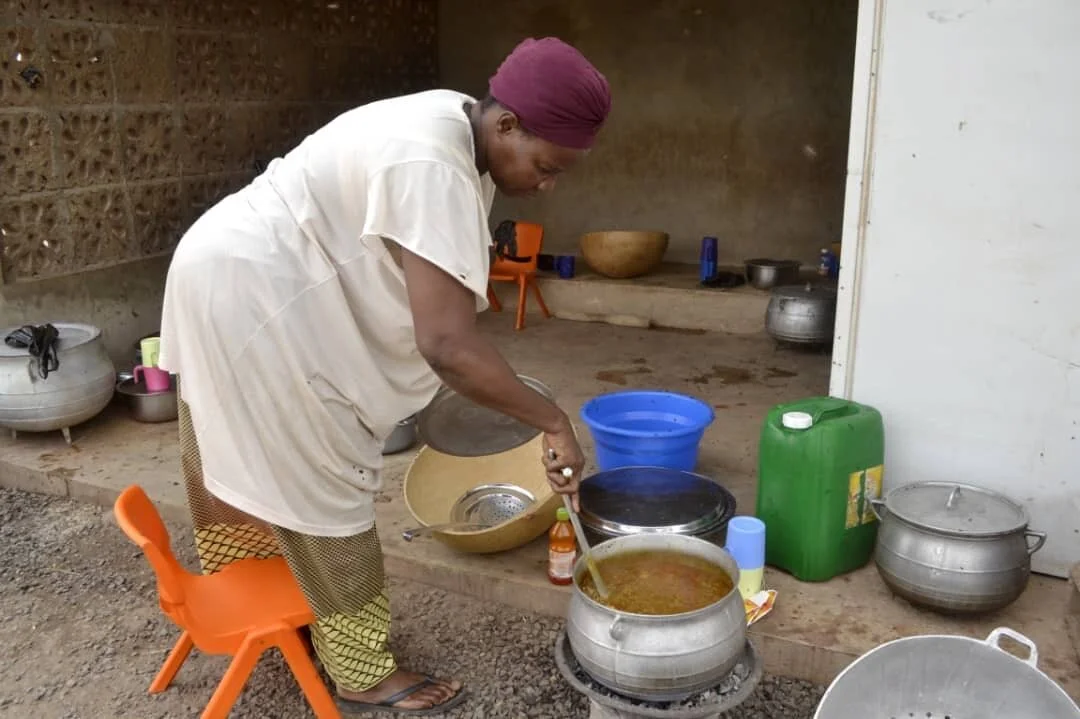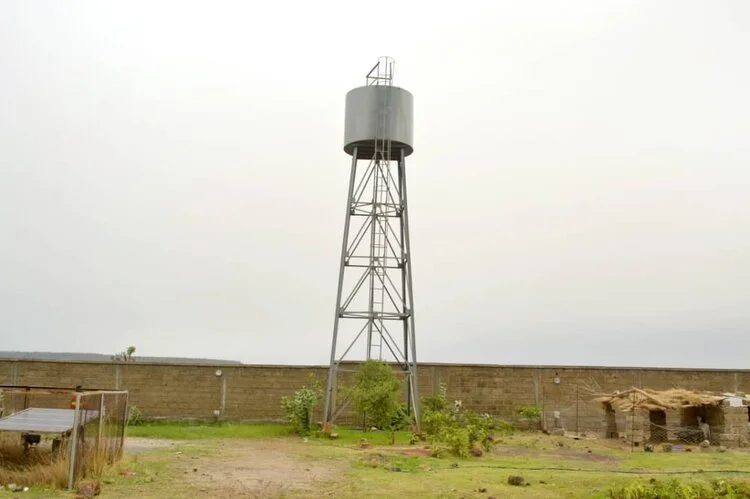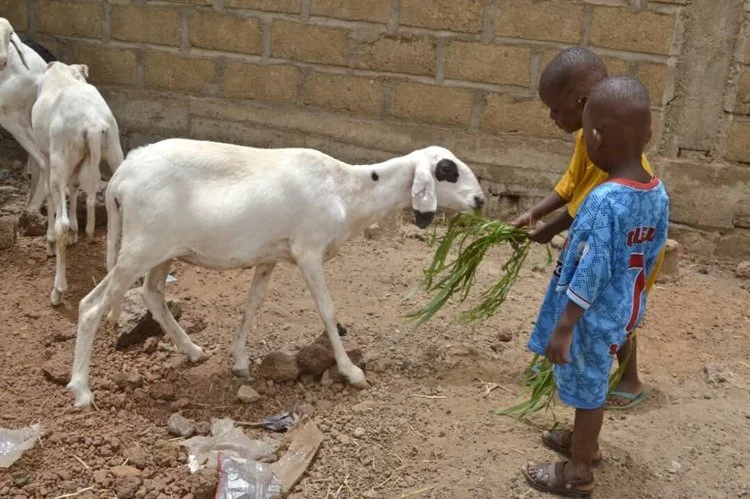nutrition & sustainability
ACFA centers sustainability in everyday practices to teach children life skills they can take to adulthood, including harvesting vegetables, raising sheep, using solar power, and more.
At ACFA, our staff prepares daily healthy meals for our children. A balanced diet ensures physical and mental development. Our menu is periodically reviewed and approved by a nutritionist.
To assist with providing the children healthy meals, we grow vegetables at Zorokoro Children’s Complex, such as lettuce, cucumbers, and eggplant. Growing their own food provides children with hands-on experience in cultivating and caring for plants, fostering a sense of responsibility and connection to the natural world.
children’s nutrition & sustainability
ACFA teaches children the value of being self-sustaining and environmentally conscious. At the Zorokoro Children’s Complex, this includes growing vegetables, raising sheep, utilizing solar power, and having an independent water supply. These activities provide hands-on learning experiences that foster environmental awareness, self-sufficiency, and resilience.
Nutrition & Farming
At ACFA, we believe in nurturing a deep bond between children and the ecosystem by encouraging them to grow community gardens and plant trees around the Zorokoro Children’s Complex.
Children who participate in growing kitchen gardens develop essential life skills such as responsibility, patience, and teamwork. They learn about plant life cycles, healthy eating habits, and the importance of sustainable food sources. These skills empower them to make informed choices about their nutrition and instill a sense of pride in growing their own food. Beyond these individual benefits, nutritional gardens also teach children about sustainability, environmental stewardship, and the importance of preserving our planet. ACFA believes in the transformative power of children growing kitchen gardens and empowers them to cultivate a lifelong love for nature, health, and sustainable living.
water supply
Implementing water sustainability practices, such as having our own water supply, educates children about the importance of water conservation and management. They become conscious of the scarcity of this vital resource and learn how to utilize water efficiently, contributing to a more sustainable future.
sheep rearing
Raising sheep not only introduces children to animal care and husbandry but also teaches them compassion, empathy, and the value of life. They learn about the interdependence between animals and humans and gain a deeper appreciation for the role animals play in sustainable food production.
solar power
Equipping buildings with solar power exposes children to renewable energy sources, teaching them about the benefits of clean energy and reducing reliance on non-renewable resources. They gain a practical understanding of sustainable energy solutions, inspiring them to embrace environmentally friendly practices in their daily lives.
By engaging children in these activities, we empower them to become agents of change, fostering a deep connection with nature, self-sufficiency, and sustainability.
Together, let's unlock their potential and shape a future where children are equipped with the knowledge, skills, and values to create a more sustainable and resilient world.


